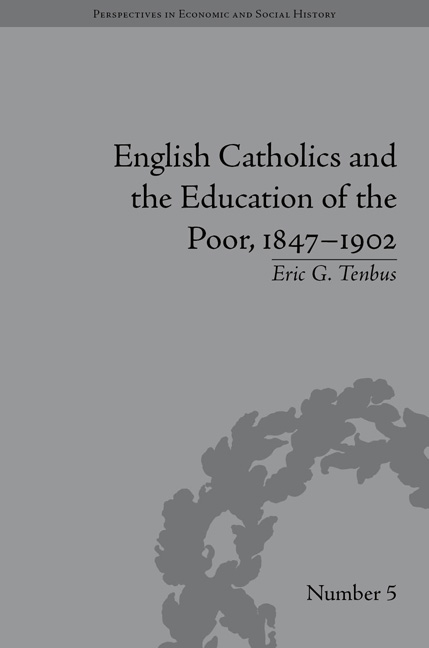Book contents
- Frontmatter
- CONTENTS
- Dedication
- Preface and Acknowledgements
- 1 A Church Divided and the Educational Solution
- 2 The Status of Catholic Education at Mid-Century and the Catholic Educational Philosophy
- 3 Educational Obstacles to Overcome
- 4 English Catholics and the Politics of Education, 1847–70: Preparing for Battle
- 5 English Catholics and the Politics of Education, 1870: The Battle Begins
- 6 English Catholics and the Politics of Education, 1871–90: Engaging With the Enemy
- 7 English Catholics and the Politics of Education, 1891–1902: A Strategy for Success
- 8 Catholic Education and Identity after the Balfour Act: The Battle Ends but the Fight Continues
- Notes
- Works Cited
- Index
6 - English Catholics and the Politics of Education, 1871–90: Engaging With the Enemy
- Frontmatter
- CONTENTS
- Dedication
- Preface and Acknowledgements
- 1 A Church Divided and the Educational Solution
- 2 The Status of Catholic Education at Mid-Century and the Catholic Educational Philosophy
- 3 Educational Obstacles to Overcome
- 4 English Catholics and the Politics of Education, 1847–70: Preparing for Battle
- 5 English Catholics and the Politics of Education, 1870: The Battle Begins
- 6 English Catholics and the Politics of Education, 1871–90: Engaging With the Enemy
- 7 English Catholics and the Politics of Education, 1891–1902: A Strategy for Success
- 8 Catholic Education and Identity after the Balfour Act: The Battle Ends but the Fight Continues
- Notes
- Works Cited
- Index
Summary
Only three years after the Education Act of 1870, Archbishop Manning decided to make education the most important issue of the remainder of his archepiscopate. Determined not to do it alone, Manning knew that his singular voice could not bring about an equitable solution for Catholics. The effort would require agitation from other members of the hierarchy, as well as the laity. It would require an energized Catholic Poor School Committee, as well as new organizations to provide the corporate leadership necessary to make Catholic opinions heard in the press and in Parliament. In a letter to Cardinal Paul Cullen, Archbishop of Dublin, Manning chose to employ a military analogy as the appropriate description of the battle they faced on education: ‘It is the field on which I should most wish to fight a general action’. Education was the issue that built the most consensus among the Catholic community. It was also an issue that gave them common ground with their Anglican neighbours, with whom they would ally in the battle over the schools. First, however, they needed to recruit their soldiers and marshal their munitions.
In the Wake of Education Act
Festering within the Catholic community in the 1870s and 1880s was a growing distrust of the school board system and disgust with the increasing financial inequality that accompanied its growth. The Catholic press reflected these beliefs frequently. A survey of articles on education provides some indication of the Catholic political drift in the post-1870 Education Act era.
- Type
- Chapter
- Information
- English Catholics and the Education of the Poor, 1847–1902 , pp. 89 - 118Publisher: Pickering & ChattoFirst published in: 2014



